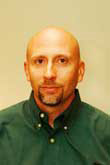The two strongest voices in the educational reform debate--accountability advocates and competition advocates--have recently overlapped after thirty years of tension by embracing charter schools. While that overlap could have signaled a powerful compromise that would have served children, schools, and society well, it actually highlights that both positions are flawed.
And the apparent truce involving charter schools also reveals that the most powerful force in our economy and our government is corporate ideology.
The loudest voice in the popular discourse about schools remains the bureaucratic political force that runs public schools. Despite decades of their tired refrain--higher standards, more rigorous tests, greater accountability--the accountability advocates cannot admit that they are ignoring the true hurdles to better schools, poverty, and offering fruitless remedies to the historical failures of public education.
However, few differences exist in the discourse or practices among the Obama administration and the previous four administrations. For example, the blueprint for educational reform under Obama makes this compelling but misguided claim: "Of all the work that occurs at every level of our education system, the interaction between teacher and student is the primary determinant of student success."
As recently as the last week in September, Obama repeated the need to fire weak teachers and that money wasn't the key to better schools--while examinations of his Race to the Top has revealed that this competition for money is in fact going to affluent students: "In short, the Race to the Top disproportionally benefits affluent or well-to-do, white, and 'abled' students."
The silver-bullet and false argument about the power of teachers is parallel to the equally compelling but flawed call for competition to cure the ills of educational attainment by all students. Yet, among choice and competition advocates, we have some evidence of hope because, unlike accountability advocates, the proponents of competition have begun to make concessions about the inherent weaknesses in their claims.
Recently, Diane Ravitch rejected both accountability and competition as effective solutions to educational reform. In June 2010, another surprising report appeared from the Thomas B. Fordham Foundation, including Chester E. Finn Jr.--longtime advocates and supporters of school choice.
In an excerpt from the book, Ohio's Education Reform Challenges: Lessons from the Front Lines, included in Education Next, Finn, along with Terry Ryan and Michael B. Lafferty, admits: "Sobered and a bit battered, Fordham continues as an authorizer of Ohio charter schools. . .and a vigorous participant in the state's larger education-policy debates. . . .Meanwhile, we've learned a lot about how much harder it is to walk the walk of education reform than simply to talk the talk, and about how the most robust of theories are apt to soften and melt in the furnace of actual experience."
In 2010, the evidence clearly shows that neither accountability nor competition (specifically charter schools) fulfills in reality what their advocates claim in theory. What is missing from the two loudest voices in the educational debate? A nuanced and evidence-based perspective of poverty's primary influence on student achievement and solutions offered to address those social failures.
And while charter schools are currently being embraced by both camps--including Obama's administration endorsing the Harlem Children's Zone (HCZ) and think-tanks such as Fordham praising charter organizations such as KIPP--they are failing for the same reasons accountability and competition have been failing for decades.
As Finn and the Fordham Foundation discovered, simply offering charter schools will not overcome the complex sources of educational failures. But, we do have a third voice that is rarely heard--a voice that calls for a recognition that social forces must be addressed along with school reform in order to provide more students with the opportunities that public schools can offer a free people.
Instead of advocacy, what we need is a nuanced understanding of education and educational reform in the context of social realities. Consider the conclusions drawn about KIPP schools from a research review that challenges the weaknesses found in the study and the simplistic claim that a KIPP model could save public schools:
KIPP, and other charter experiments, show some success, but some failures as well. In short, charter schools, private schools, and public schools all present a range of success and failure, most often tied to the socioeconomic status of the children.
When the Obama administration supports the HCZ while ignoring that those charter schools include virtually no special needs or ELL students, when think-tanks release advocacy reports that fail basic peer-review, when accountability advocates and competition advocates repeatedly ignore the power of poverty to negatively impact the lives of children, including their academic achievement, we are doomed to failure as the status quo.
Now, if the accountability reformers can discover the humility being embraced by the competition reformers, the calls to address social failures, poverty in the lives of children, may be heard once both corporate-driven advocacy camps stop talking and start listening.





